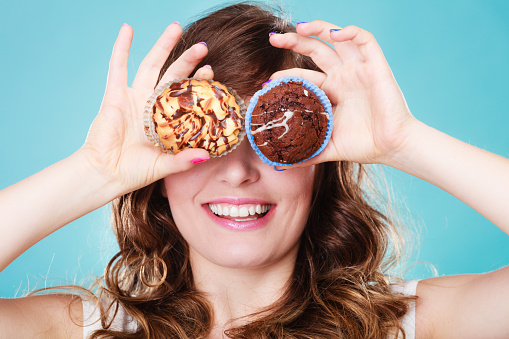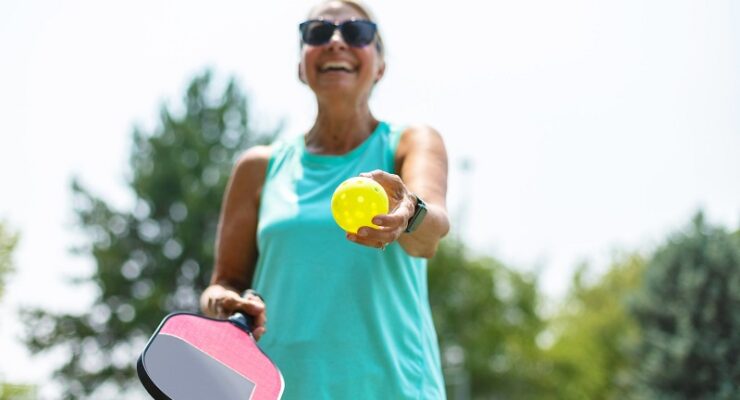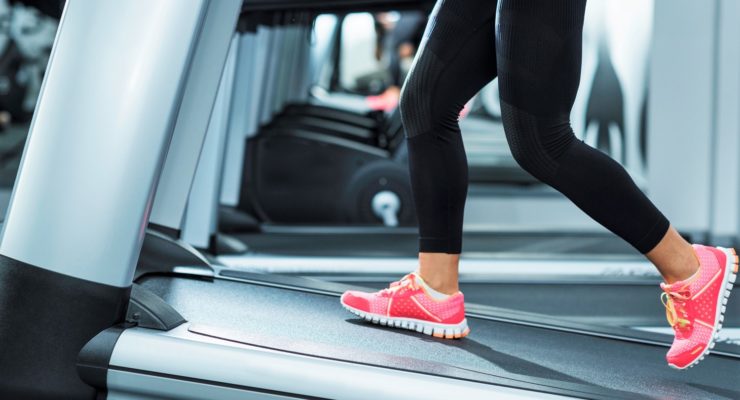How to Stop Overeating After a Workout
Article posted in: Fitness
After unloading a bunch of calories during a sweat session, it’s not uncommon to want to ravage the pantry or reward yourself with something otherwise “off limits.” But, be careful: The last thing you want to do after a gratifying and challenging workout is to undo your hard work with an all-out binge.
The key is to replenish your body with wholesome foods in healthy quantities and, if weight loss is your goal, to consume fewer calories than you burn. Knowing how to properly nourish your body after a workout is key. We caught up with Nutrisystem nutrition expert Deanna Otranto, M.S., to find out her top tips for beating the post-workout munchies.
1. Grab a Snack
“It may seem counter-intuitive, but one of the best things you can do post-workout to ward off an overindulgence is to eat,” says Deanna. Just make sure that your selection serves up that all-important macronutrient, protein. “After a workout, your muscles need protein and amino acids to rebuild and repair themselves. Easy, portable options like hard boiled eggs, nuts or protein shakes are great choices because they require little prep work.” Minimizing prep time is important considering The Academy of Nutrition and Dietetics recommends eating a small snack within just 15 to 20 minutes of wrapping up your workout. The Academy recommends eating your next regular meal three to four hours later.
2. Track Your Diet and Exercise
According to a 2015 Journal of Sports Medicine Physical Fitness study, people tend to overestimate the amount of calories they burn during a sweat session. Scary stuff if you’ve been using your workout to justify that stop at the ice cream shop on the way home from Zumba every Sunday. The best way to paint an accurate picture of how many calories you’re actually burning? “Keep track of your calories in and out—at least until you’ve mastered accurate estimating,” says Deanna. “Studies suggest that people tend to underestimate the quantity of calories they consume and overestimate the amount they burn. And machines at the gym are notorious for vastly overestimating your calorie burn. Considering that many people use a workout as an excuse to indulge, this is a recipe for diet disaster.”
To get some calorie clarity, Deanna recommends wearing a fitness tracker or taking advantage of the countless apps and online tools designed to track your intake and calorie burn. She points to a 2008 study in which participants who recorded their daily intake lost twice as much weight as those who didn’t keep a food diary. Interestingly, in a small 2014 study, those who used a smartphone app were over 20 percent more consistent with their food logging and diet tracking over eight weeks than those who used paper journals—suggesting that using online tracking tools may be most effective. To help make staying on track easier, the Nutrisystem app makes it easy for you to log your food and water intake, physical activity and weight.
3. Eat Healthy Fats
What you eat before and after your workout is important, yes, but so is what you eat all day. In the weight loss world, fats have gotten a bit of a bad rap. But you need dietary fat. Fat is a major source of energy for your body, it’s essential for the absorption of several nutrients (think vitamins A, D, K and E), and it plays an important role in cellular function, blood clotting and muscle movement. Plus, you can thank fat for that satisfied feeling you get post-meal, which will help you manage the onset of exercise-induced hunger many workout warriors experience. Just make sure you’re choosing healthy fats.
“The question isn’t whether or not we should be eating fats. The question is which fats should we choose,” says Deanna, who recommends opting for omega-3 fatty acids that may help lower cholesterol and keep your ticker healthy. These fats are found in fatty fish, eggs, walnuts and flaxseeds. She also recommends monounsaturated fats, found in nuts and nut butters, oils and avocados. These fats can reduce your risk of heart disease, making them great options as well.
4. Retrain Your Brain
“Let go of the idea that you’re exercising to eat, or that food is your reward for making it through a tough workout. Food is meant to fuel your activity and your healthy lifestyle,” says Deanna. “You don’t have to earn it with long hours in the gym, you just have to make the right choices. Thinking of it any other way could lead you down a dangerous path where being active stops feeling like a choice and starts feeling like a necessary chore.”
Embrace the notion that consuming nourishing food is actually treating yourself, as opposed to indulging in high-calorie, so-called “rewards” that do not set you up for long-term health. It may take some undoing of old habits, but once you embrace food as fuel for a healthy body, instead of a prize you earned, you’ve conquered a major part of the battle.








